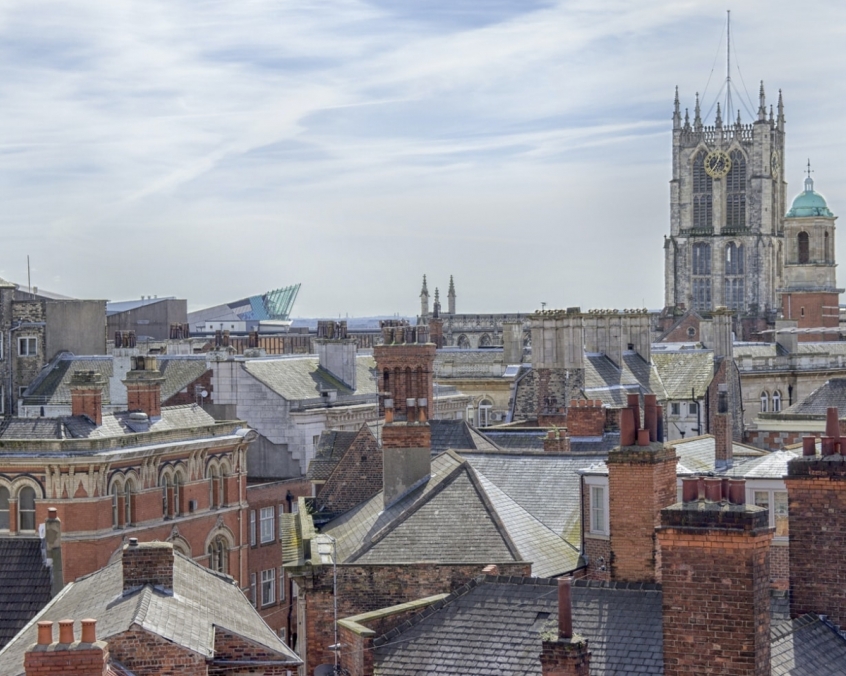
Did you know that a recent YouGov report (29.12.2020) found that 56% of Britons still consider the United Kingdom a Christian country?
Neither did I, until a few days ago. In the hubbub of Christmas, coronavirus, and New Year, it is understandable that these findings slipped through most people's nets.
It is good news though, right? Christianity isn't as socially irrelevant as some glum folk claim. I wish that I could agree with this comforting conclusion. Sadly, I find myself fearing a far more unsettling reality.
The majority of Britons think the UK is still a Christian country. This is good news only if you want to be popular.
On the one hand, you have those who cannot conceive of the Church as anything other than the one central, unassailable pillar of British life. Christianity made Britain great; it was, is, and shall remain the order of the day.
For them, the YouGov report offers an uneasy hint of validation: "the country is still ours [even if by a thread]." This is, regrettably, somewhat delusional.
On the other hand, you have those who crave power and popularity and will do anything to procure them. The politicians of "the people." They seek a common marker of national identity which they can use to protect "the people" from a common national enemy.
(Take PEGIDA – "Patriotic Europeans Against the Islamisation of the Abendland" – in Germany, for example, who feel they must protect Christian culture from those "others" (read: 'refugees') who seek to undermine and override it. And, closer to home, see Nigel Farage's most recent claims of a culture 'under assault'.)
For them, the YouGov report offers perfect kindling for the flames of their culture war: "the UK is Christian – see! – and we must defend it against others who threaten that." This is terrifyingly dangerous.
For the rest of us – both in and out of the Church – the YouGov report is not good news. It signifies the perpetuation of a delusion, and a dangerous one too (e.g. a 'far-right invasion of Bradford and Glasgow mosques' in 2014).
Whatever the 56% might think, the United Kingdom is not a Christian country.
As anyone who has ever earnestly tried to be a Christian will know, there is a world of difference between calling oneself a Christian and actually following Christ.
Of course, it is difficult to measure genuine Christ-following. What metric do you use?! Regular church attendance seems as good a marker as any.
In 2015, the Brierley Consultancy found that only 5% of the UK attended church weekly. That's not a whole lot.
On top of this, the recent 2019 British Social Attitudes survey reported that just 11% of the UK attends a religious service weekly – which suggests that Christians do not even make up half of the UK's weekly religious devotees!
YouGov's report that 56% of Britons consider the UK Christian cannot, therefore, be a stamp of the Church's legitimacy as a still thriving institution. Nor can we allow the far- or populist-right to use the report's findings to claim Christianity for their own culture war and intolerant ends.
What then can we do about this?
To begin with, falling before God in prayer would not be a bad start.
There is plenty to pray for – just read the news or take a walk if you are stuck for ideas. And pray also for prophetic imagination – to see the world as God would want it – and the Holy Spirit's help in breathing that prophetic image into reality.
We can also call out fraudulent claims to Christianity.
Dialogue is essential: we should be ready for – and often even start – conversations about what following Christ is and what it is not. Perhaps nobody will pay us any notice; why should that stop us? A record of attempted corrections is better than a simply blank slate.
And alongside correcting what Christianity is not, we can show what real Christianity is. We can make Jesus alive and present in our communities by mirroring his love, imitating his mercy, and resounding his call that all people follow him.
Would it not be amazing if the Church's prayers, conversation, and witness were all to lead to more and better Christ-followers in the UK, such that we really could say it was a Christian nation?













